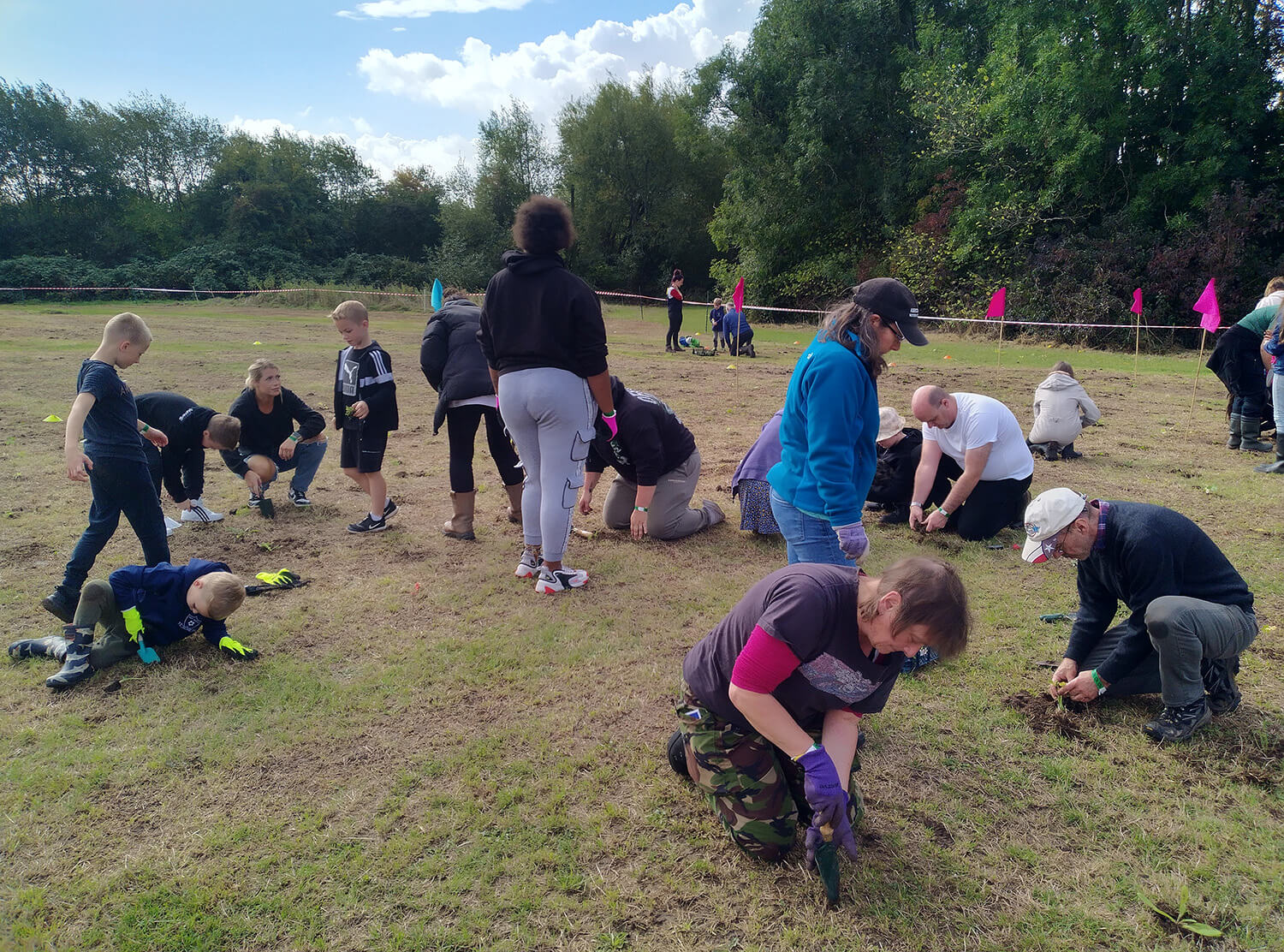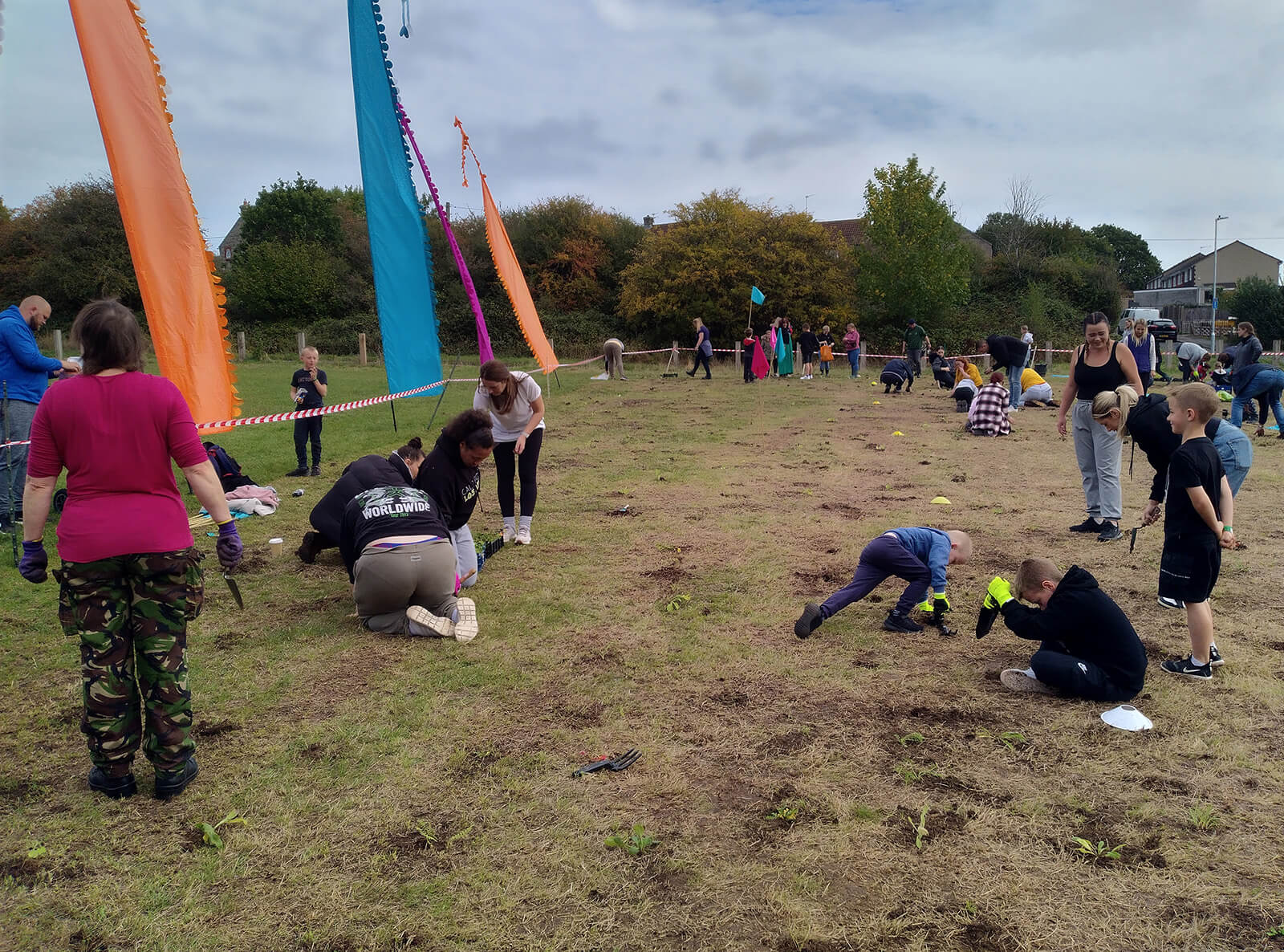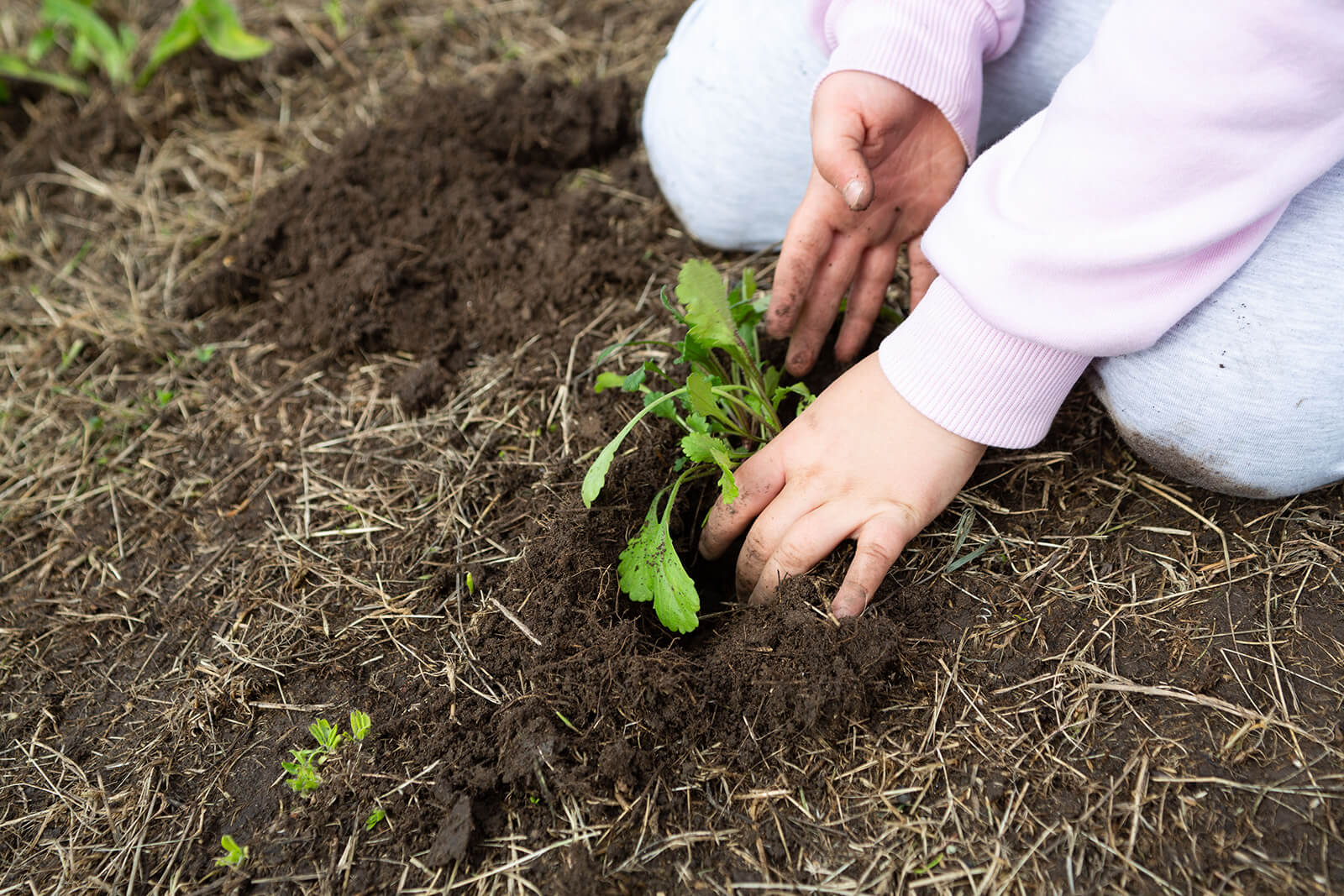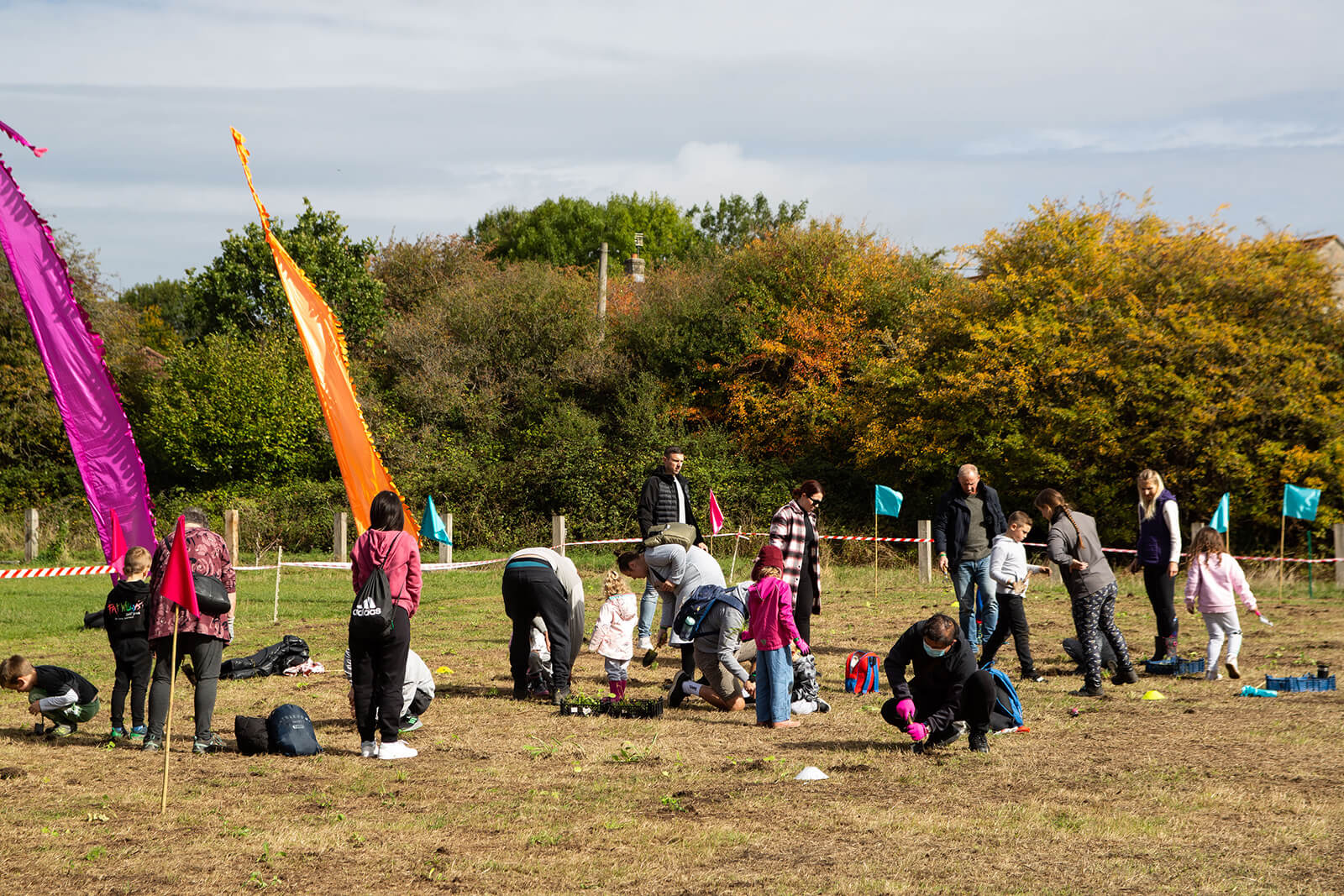Oakwood Agency supported the planting of 1 hectare in the UK across 2022-2023
Oakwood Agency is part of an imaginative and beautiful solution to the problem of the loss of flowers and pollinators in the UK. Not only are wildflowers attractive and beneficial to our well-being, but for the thousands of pollinating insects, wildflowers are critical.
Since 1940 we’ve lost ninety seven percent of our flower rich meadows and hundreds of our pollinator species are in decline. In areas, our local wildlife finds itself in isolated oases, walled in by agricultural land, urban landscapes, roads, and gardens.
Our solution is to restore B-Lines – a network of insect pathways along which we are restoring and creating wildflower rich habitat. These insect super highways created in partnership with GreenTheUK and Buglife will extend across the whole of the UK, allowing wildlife to move freely through our countryside and towns. Thanks to Oakwood Agency, we have created a network of flower-rich pathways benefitting pollinators, other wildlife and people. The wildflowers were sown across 2022-2023.

Wildflower Restoration in Bristol (1 hectare)
The historic Siston Common still contains large areas of species rich semi-improved neutral grassland, where a diverse range of native wildflowers and meadow grasses are still found. These areas have never been ploughed or fertilised and have for centuries been continuously grazed by cattle and other animals until around 30 years ago. To compensate for the comparatively recent loss of grazing, grass cutting practices have been improved and refined in recent years to hep conserve and protect these precious grassland habitats.
The meadow area within the northern compartment of the Common is by comparison very much the ‘poor cousin’. The area is said to have been used as a dumping ground for some of Bristol’s WW11 bombsites, so unlike the rest of the common the land is very much disturbed. In later years the area was the recreational focus for the Common, used for informal football pitches, fairs and events. Although some of the grassland could still be broadly classified as semi-improved neutral grassland, it was far less species diverse, in poor condition and consisted mostly of ‘rank’ grass types.
Larg parts of the north meadow are classified as species poor, modified, semi-improved grassland. In line with the accepted approach to achieving biodiversity gains, through improving, expanding and better connecting habitats, work was undertaken in 2023 to increase plant diversity across the northern meadow to increase the amount of species rich grassland available and and expand the beneficial reach of Siston Common.
The entire northern meadow was scarified to expose 50% bare earth, before being seeded with wildflower and meadow grass seed that had been sustainably harvested from the nearby Yarley Meadows Site of Special Scientific Interest (SSSI). Surveys of Yarley Meadow have identified that in the region of 50 different plant varieties are found there. To ensure the new meadow made a visual impact in its first summer, some additional annual cornflower seed was added, and then to help to deter the return of the previously dominant vigorous grasses a good quantity of seed of the parasitic Yellow Rattle plant was also added.
To further consolidate the new meadow a mass planting event was held with the stated challenge of planting 10,000 wildflower plug plants. Most of the 10,000 plug plants were concentrated towards the end closest to the rest of the Common, thereby most effectively boosting the level of habitat connectivity. Again, a very diverse range of wildflower plug plants were used. The ‘10k Challenge’ event, held in 2023, attracted around 400 volunteers across the day. It was held in conjunction with an event to celebrate winners of the West of England Mayor’s Bee Bold Awards.
This Siston Common North meadow creation is a part of the larger WECA funded Common Connections project and as well as the support received from Oakwood Agency, the work to create the new meadow area also attracted support from the Enovert Community Trust.
Wildflowers & Grasses Planted

UN's Sustainable Development Goals
As a GreenTheUK partner, you support projects that are in line with the UN Sustainable Development Goals.

Take urgent action to combat climate change and its impacts.

Sustainably manage forests, combat desertification, halt and reverse land degradation, halt biodiversity loss.































































